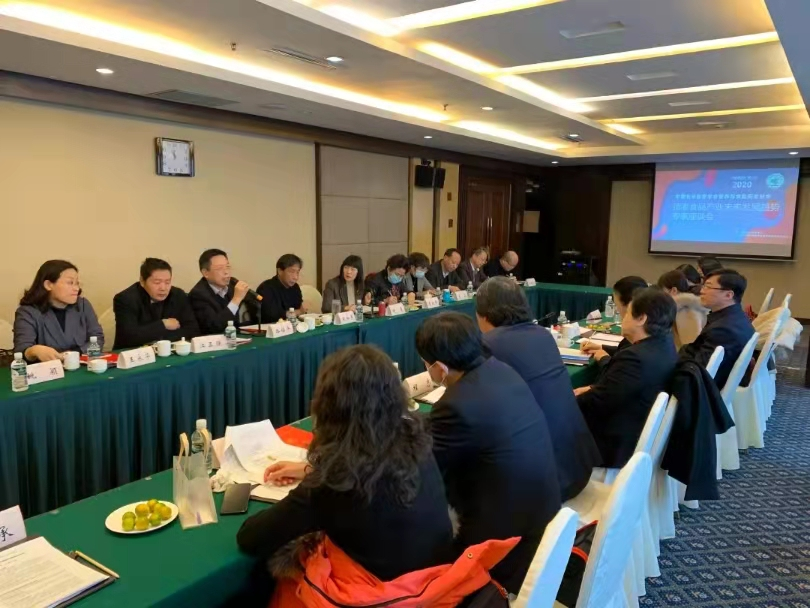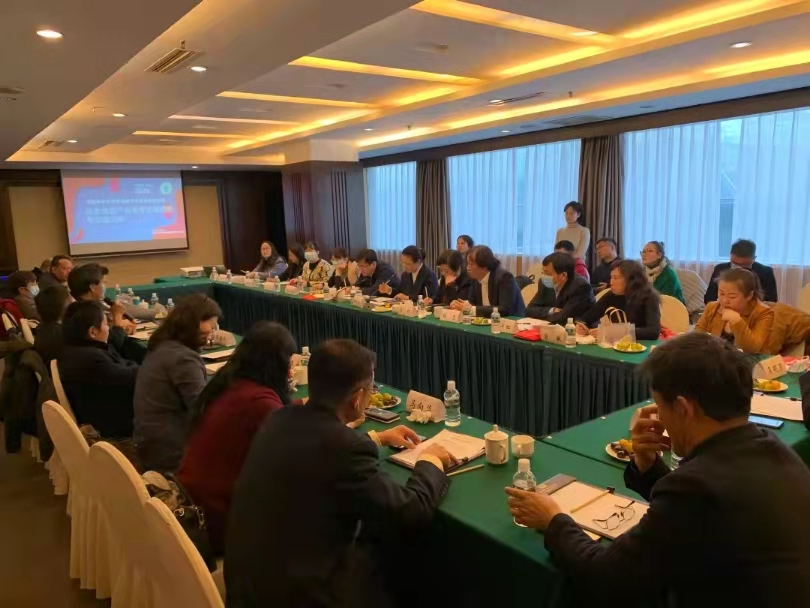Scientific Construction of China's Independent and Controllable Food Industry Chain for the Elderly — — Who Has the Final Say on What the Chinese Elderly Eat
The "Expert Symposium on the Future Development Trend of the aging Food Industry of the Nutrition and Food Safety Branch of the Chinese Gerontology Society" was held in Nanjing on December 19, 2020. The meeting aims to summarize the imbalance between supply and demand of age-appropriate food in China, analyze the exploration experience of other countries, and study how to promote the scientific construction of China's independent and controllable age-appropriate food industry chain.

Professor Zhang Qiujian, deputy Secretary General of the 12th CPPCC National Committee, Deputy director of Education, Science, Culture, Health and Sports Committee, President of the Chinese Geriatric Society, Director of the National Geriatric Disease Clinical Medical Research Center (PLA General Hospital), Professor Fan Li, President of Tianjin University of Science and Technology, Director of the State Key Laboratory of Food Nutrition and Safety, Director of the Key Laboratory of Industrial Fermentation Microbiology of the Ministry of Education Professor Lu Fuping, Prof. Guan Xuefeng, Vice President of Liaoning University of Traditional Chinese Medicine; Prof. Li Youping, Founder of Evidence-Based Medicine in China and tenured Professor of West China Hospital, Sichuan University; Prof. Jiang Zhengqiang, College of Food Science and Nutrition Engineering, China Agricultural University; Prof. Zhang Heping, Director of the Key Laboratory of Dairy Biotechnology and Engineering, Ministry of Education, Inner Mongolia Agricultural University; Professor Wang Yonghua, Vice President of the School of Food Science and Engineering of South China University of Technology, Cheng Zhi, Vice President of the Chinese Geriatric Society, Professor Hu Wen, Vice President of the Chinese Geriatric Society and President of the Nutrition and Food Safety Branch, and some vice presidents, Standing Committee members and General directors of the Nutrition and Food Safety Branch attended the meeting.

Affected by physiological decline or disability, susceptibility to disease, long course of disease, complex disease and other factors, the elderly are prone to malnutrition. Malnutrition in the elderly had significant effects on quality of life and death attribution. However, the elderly are affected by age-related physiological changes, their appetite is generally poor, the total amount of food that the digestive tract can tolerate is limited, and ordinary diet and food are difficult to meet the nutritional needs of the elderly. In view of the severe aging situation, there is an urgent need to supply suitable food for the elderly.
Experts at the meeting pointed out that the concept of age-appropriate food in China can be traced back to the 1980s, but its classification is not clear, and the research progress is extremely slow; There are few varieties of old food available for sale, and few choices, mainly to prepare milk powder, pastry, biscuits, sesame paste, lotus root powder and other starch foods, flavor and taste are relatively simple. The introduction of the "Functional Labeling Food" Management Measures in Japan in 2015 and the revision of the Codex Alimentarius in South Korea in 2019 reflect similar thinking in developing the age-friendly food industry in neighboring countries. According to the spirit of the Central Economic Work Conference in 2020, the development of the aged food industry needs to be oriented towards the nutrition and health needs of the elderly; Research on how to scientifically build China's independent and controllable age-appropriate food industry chain, and how to evaluate and evaluate age-appropriate food are the future work focus of the branch; To continue the fight against the new coronavirus epidemic, we can first explore the direction of "immune food" for the elderly.
The second committee of the Nutrition and Food Safety Branch of the Chinese Geriatric Society will focus on the work focus of the elderly, consolidate the foundation, enhance the brand impact, actively carry out research on the production, learning, research and use of the elderly food, face the needs of the grassroots, promote the education and training of the elderly nutrition talents in the community, and promote and transform the relevant group standards of the elderly nutrition.


